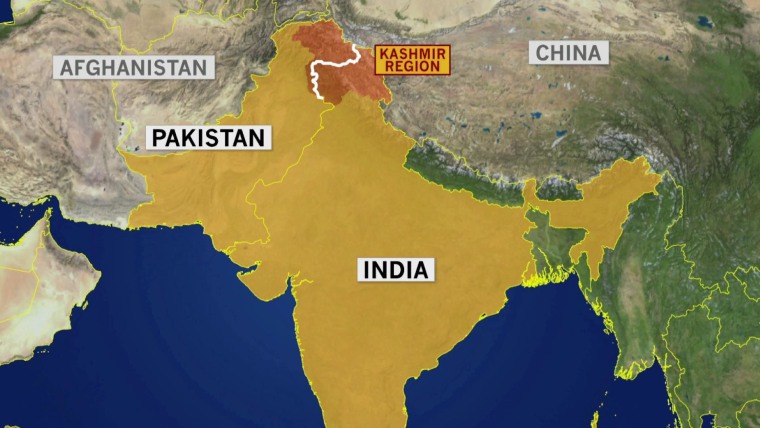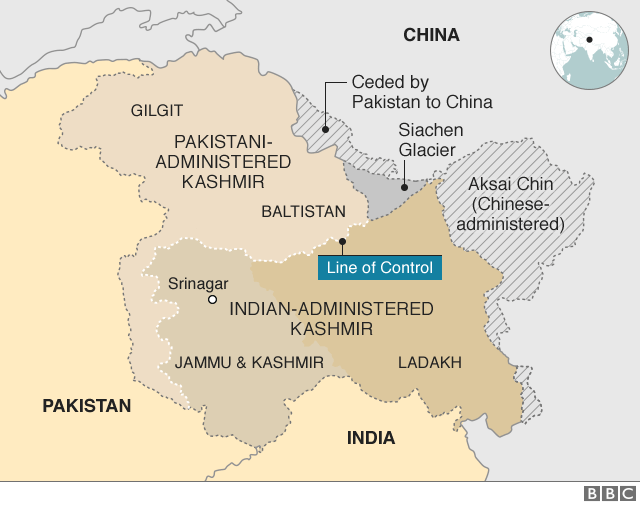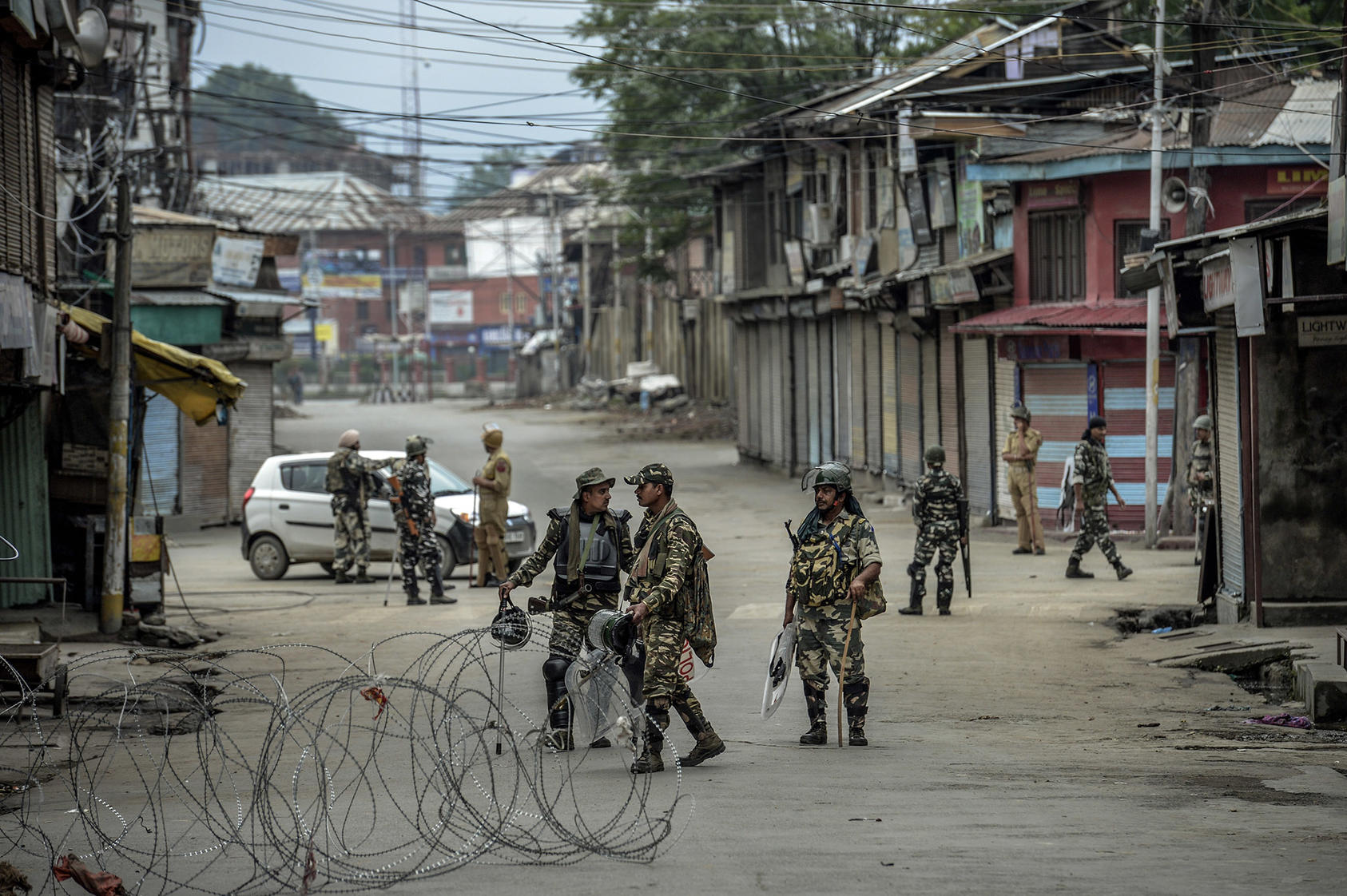The day has finally come. We have reached our last passion blog ever. Despite everything that has happened in spring semester, I feel like freshman year really went quickly. So, to end the blogs I thought we would talk about a India and Pakistan. Why you might ask? Well, because of the destructive nature that a war could take between the two (and also I just wrote a paper on the topic). So sit back, grab some coffee and lets dig in.

Source: NBC News
The main source of tension between the two nations is due to a region known as Kashmir (pictured above). When Britain left Pakistan and India, it allowed Kashmir to decide which of the two nations it would like to be a part of. At the time, the leader chose to be part of India, but originally he did want Kashmir to become independent. Soon after this was announced, a war broke out between Pakistan and India over the territory. Following the first war, India and Pakistan signed a ceasefire that established the Line of Control (LoC) in Kashmir. The agreement split Kashmir between India and Pakistan. Shortly after, China would win a war against India and acquire the Himalayan region of Kashmir. Meanwhile, Pakistan ceded part of Kashmir to China as well.

Source: BBC
A couple years later, in 1965, India and Pakistan clashed yet again over Kashmir, in a war that resulted in heightened tensions between the two nations. Soon after, in 1971, India aided East Pakistan in its fight for independence, upsetting Pakistan. East Pakistan succeeded, and is now known as Bangladesh. The war was important because it established India as the ultimate power in the region. Up until 1999, there was actually a lot less conflict between the two nations, as Pakistan realized that it could not go to war with India because it would suffer a resounding defeat. However, this all changed when both India and Pakistan acquired nuclear weapons, and tested them, in 1998.

Source: United States Institute of Peace
In 1991, there was what is known as a “limited war” between India and Pakistan. It is defined as limited because it did not surpass the threshold for a war which needs to have 1,000 military deaths. The conflict was incredibly significant because both nations had nuclear weapons, and both nations were at a considerable risk to use them. Thankfully, there was no nuclear war, but the entire conflict was a very close call.

Source: Al Jazeera
I personally believe that the conflict between India and Pakistan is one of the most important in the world to watch because both nations have nuclear weapons. It is particularly concerning today, because of the nature of both the nations’ governments. India has a strong, nationalistic party, that once ran with a platform that championed nuclear weapons. Pakistan has a weaker democracy, it has often shifted between civilian rule and military rule. This is worrisome, because even if today the military is not in power, it still holds a lot of influence. Many theories suggest that the military tends to push for a preemptive or preventive war, which could result in an accidental nuclear war between the two nations. What are your opinions on the conflict? Do you think we should continue to be concerned? Do you believe that nuclear weapons actually are making the region more secure?
I definitely agree that this conflict is very important to watch because of the threat of nuclear weapons. I also think that nuclear weapons in general are important to watch for all nations. The mutual ability to kill millions of people and cause another apocalypse is quite worrying. I think this is why disarmament is a very large debated topic, especially on the national scale. So I do agree that we should continue to be concerned.
This was really informative! I feel like you hear so much about Israel-Pakistan that it overshadows this issue. Great last blog!
First, congratulations on your amazing, well deserved A on your paper. I will miss your blog posts more than I thought. They always kept me informed whenever I was slacking on my knowledge of international affairs. I believe that Pakistan and India will never be truly at peace with each other and that their borders will always be filled with tension. Both countries having nuclear weapons is extremely worrying. Thank you for explaining what is happening in the world, which can be extremely difficult, in all of your blogs.
I didn’t know the history of the conflict very well so thanks for writing a very informative piece on it. Personally, I think that with the current head party of India being strongly in favor of Hindu favoring policies, that Pakistan and India have a long time to wait before they reach any lasting piece.